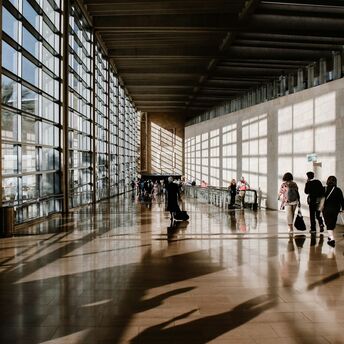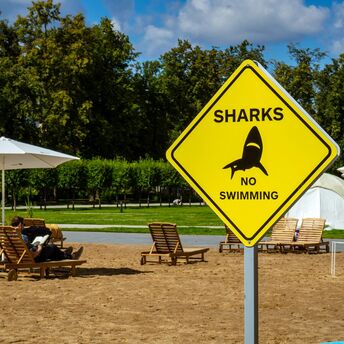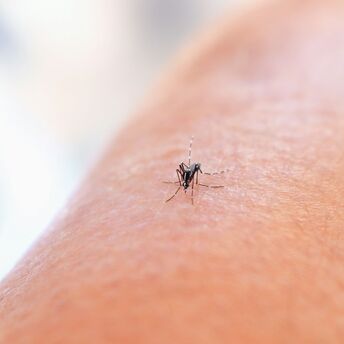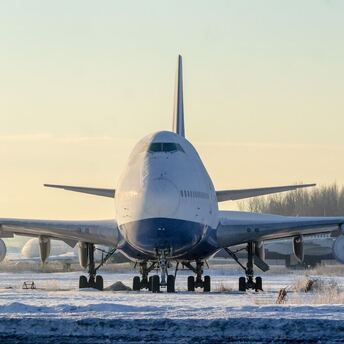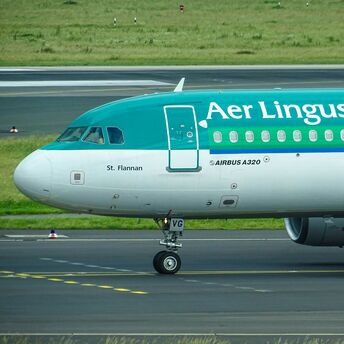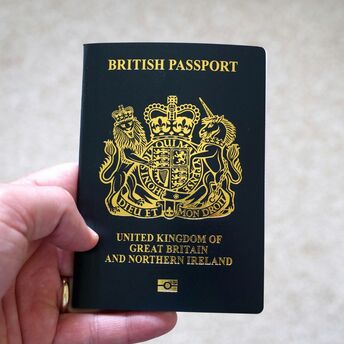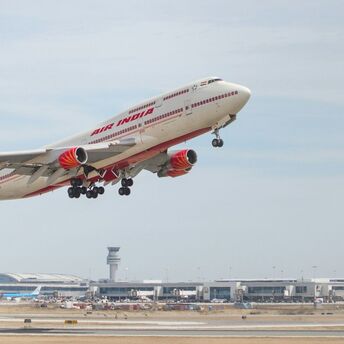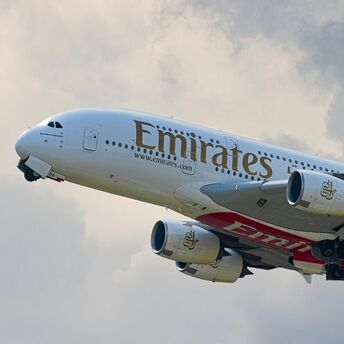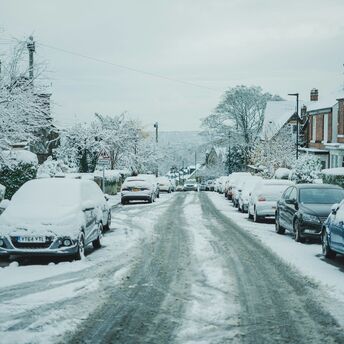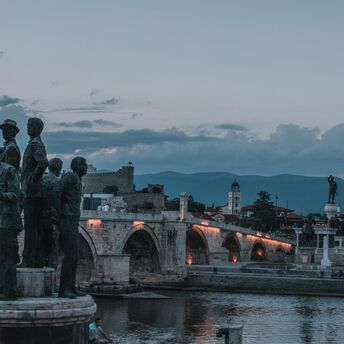Top 10 reasons for flight cancelation by airlines: a clear algorithm of actions to get compensation

Flight cancellations are a common occurrence at airports, and many travelers experience this situation from time to time. Recently, there has been a sharp increase in the number of flight cancelations or delays by airlines in the United States and European countries. This is due to several reasons, which we want to tell you about now.
In our article, we want to explain the main reasons for airlines canceling flights due to natural and technical factors and share tips on how to get monetary compensation.
"Inclement" weather
One of the first factors why airlines cancel flights is inclement weather. Of course, light rain or snow doesn't prevent flights, but if a hurricane or blizzard is raging, it's best to cancel the flight so as not to jeopardize passenger safety. Judging by the situations, airlines sometimes postpone the departure of transport, but sometimes the only correct solution is to cancel the flight.
The main weather-related reasons for canceling flights are:
- Poor visibility due to heavy fogs and storms. Such weather conditions pose a direct threat to the health of passengers and pilots. They can cause equipment failure and serious accidents. Often pilots decide whether or not to start a flight after receiving the results of instrument testing.
- Hurricanes, heavy rain with thunderstorms and cyclones. Severe storms can cause areas of turbulence with gusty winds, rain and a high probability of tornadoes.
- Blizzards and snowstorms pose a serious threat to passengers and pilots. This phenomenon is especially common in regions with extreme weather conditions during the winter season.
In the United States of America and other countries of the world, there have often been cases when a storm led to the cancelation of more than a thousand flights. Sometimes natural disasters cause mass cancelation of airplane departures in several regions and even countries of the world at the same time.
Innovative instrument landing systems (ILS) and radar systems help pilots when visibility is poor. They improve the navigational properties of equipment and make it easier to navigate in space even in unfavorable weather conditions.

Our tip: Before planning your trip, thoroughly scour the weather forecast for the desired period in both the departure and arrival areas of your transportation. Monitor the status of operational flights using carrier apps and web resources, including Flightaware.com.
Technical issues
Airplanes undergo a detailed technical inspection before each flight. If malfunctions are discovered during the inspection, the flight may be delayed and, later, canceled. Aircraft technical faults are controlled by the airlines and are not classified as emergencies.
Aircraft technical malfunctions include problems such as:
- sensor failure;
- hydraulic systems and components failures;
- communication difficulties and failures in key flight control systems.
Technical failures are often associated with malfunctions of electrical mechanisms, engines and landing gear. Such problems significantly threaten the operation of transportation and passenger safety.
Onboard monitoring systems are widely used nowadays. They help to quickly identify the smallest breakdowns of transportation and prevent crisis situations.
With the help of special sensors pilots detect the smallest violations of engine functions and other elements of the airplane. When such problems are detected, pilots can switch to backup mechanisms and send requests for emergency assistance in restoring transport operation.
With the availability of critical spare parts, functional equipment, and competent personnel, malfunctions are repaired very quickly. Sometimes the delay in repair is due to the lack of necessary component materials, so it is important to have a coordinated work of specialists, taking into account all logistical subtleties.
Our tip: If your flight is canceled due to transportation failure, you are entitled to claim compensation. Booking a red-eye flight in the evening and at night reduces the likelihood of flight cancellations when airports are less busy.
Technical problems of flight cancelations also include the failure of airport computer systems. This is most often caused by software malfunctions in electronic communication systems.
Computer malfunctions negatively affect the formation of transportation schedules, as a result of which flights are often canceled. In such cases, you are also entitled to receive monetary compensation from the company.
Change of crew composition
In aviation practice, flights are often delayed or canceled due to illnesses of crew members and strikes of employees. Force majeure circumstances that occur shortly before an aircraft is dispatched may also result in the cancelation of its departure.
Airlines often face problems related to staff shortages, including flight attendant pilots and ground staff. More often than not, they utilize specific contingency plans to deal with such instances with the use of back-up staff for flights or changes in transportation schedules.
To maintain full staffing, crew resource management (CRM) strategies are increasingly being implemented these days. This program can quickly address the complexities of crew changes and keep flights running smoothly.
Safety threats
One of the main conditions for the smooth operation of airlines is to ensure the safety of passengers. For this purpose, special checks of travelers' documents and luggage are regularly carried out, as well as careful observation of what is happening in airport halls.
If suspicious items are found on passengers (bags, bags or packages), airport staff clarify their contents and rule out the presence of components that threaten the safety and life of people. Safe travel for passengers is also threatened by forest fires, political upheavals and natural disasters. Difficulties usually take time to resolve, so flights may be delayed or even canceled.
Transportation shortages
Year after year, the number of travelers increases rapidly while the number of aircraft remains about the same. Transportation shortages can cause flights to be delayed and canceled. In the absence of alternative transportation, flights may also be canceled in the event of technical problems.
For example, during major epidemics, travel demand usually decreases and the government imposes strict travel restrictions. This leads to flight cancellations due to lack of transportation that meets the necessary norms and requirements. During holidays and summer vacations, the number of aircraft available in the fleet may be insufficient and flights are also canceled due to shortage of vehicles.
Shortage of passengers
Flight sales are greatly affected not only by aircraft shortage but also by passenger shortage. If there is insufficient occupancy, flights may also be canceled due to low profitability of the flight.
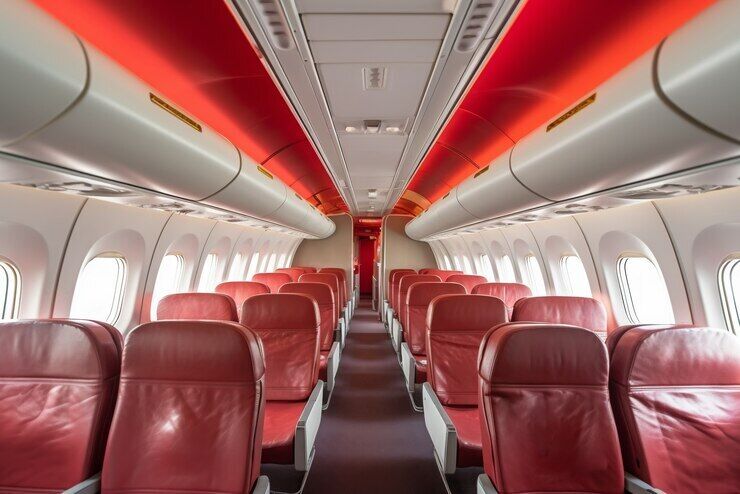
It is not uncommon in aviation practice to combine flights with others in order to save finances and resources. Full-fledged operation of airlines is possible only if they maintain an appropriate level of flight profitability. In other words, flights must generate profits for airlines to justify the costs of fuel, crew salaries and tax levies. Otherwise, they can easily be canceled.
Airspace congestion
At first glance, it may seem to us that overloading by vehicles is only possible on roads and railroad tracks. In the sky, such a situation is also quite possible when the number of airplanes traveling at the same time exceeds the number allowed in a given period of time.
Air traffic control imposes restrictions on how airlines schedule airplanes. When air traffic control systems malfunction, including communication failures, radar and software malfunctions, errors may occur in the scheduling of transport movements. Identifying them also results in transportation schedule changes.
Busy flight schedules
Too busy flight schedules can lead to flight cancelations. The specifics of air flights are radically different from the movement of buses and trains. After each flight, the attendants have a lot to manage:
- unload luggage;
- clean and refuel the airplane;
- load a new batch of luggage.
Flight delays result in a shorter preparation period for the next flight. Thus, with each shipment of transportation, there is a decrease in the time required for new preparations.
Bankruptcy of airlines
In aviation practice, it sometimes happens that companies cease to exist and declare bankruptcy. This is due to the excess of financial costs over the profit generated by the company's operations.
In such situations, it is inevitable that flights are canceled or consolidated in order to simplify operations and utilize resources efficiently. Sometimes airline companies emphasize the most profitable flights, which gives them hope for financial "revival".
When flights are canceled, airlines must provide you with alternative flight options or refund the cost of your tickets. Sometimes organizations pay compensation for inconvenience.
Important: You can only receive monetary compensation for canceled flights if the airline is at fault. In the case of extreme weather conditions or emergencies not related to its work, payments are not provided.
In what cases can I receive compensation?
If the airline warns passengers 2 weeks in advance about the cancelation of the flight, then no compensation is due, but if the cancelation occurred shortly before the flight, then compensation is due.
In such cases, the company must offer you alternative travel options from this company or a partner organization. Otherwise, you must receive the full amount of your ticket payment within 7 days. In addition, you are fully entitled to receive compensation ranging from 130 to 650 USD.

It makes no difference what kind of flight you take - regular or charter. When paying for flights, passengers enter into a contract with the airline, which guarantees its delivery at a certain time and place. Delayed departure of transportation, canceled flights or prohibited boarding due to overbooked tickets act as clear evidence of a breach of contract by the airline company.
Do not hesitate to demand compensation for violation of your legal rights. Statistically, 98% of passengers receive it when flights are canceled. The timeframe within which you can claim compensation varies from country to country.
What should I do to get compensation?
Algorithm of actions when airlines cancel flights:
- Receiving a stamped document that testifies to the fact that the flight has been canceled. In this case, it is worth paying attention to a clear description of the reasons for the situation.
- Such a document can be obtained in the information department of the airport. It is always possible to call the call center of the airline company to clarify the details of the flights. The phone number can be found on a banner at the airport or on the official website of the company.
- Keep your tickets, boarding passes and luggage tags and take photos of them. You can also take a photo of the departure information board with the time and status of your flight.
- Don't throw away receipts for meals, hotel stays, and cab, bus, or train services you used after your flight was canceled.
If the wait time for the next flight after a canceled flight exceeds 2 hours, you must be provided with food and beverages, 2 free calls or the ability to transmit messages by fax or e-mail. In addition, you are entitled to a shuttle service to the hotel with a room reservation if your next flight is scheduled for the next day.
If the airline has ignored your demands after your appeal related to flight cancellation, you can safely go to court. In such cases, you can hire an experienced lawyer or contact a company that specializes in resolving issues related to the transportation of passengers by airlines.
Happy travels with your airplanes departing on time!





